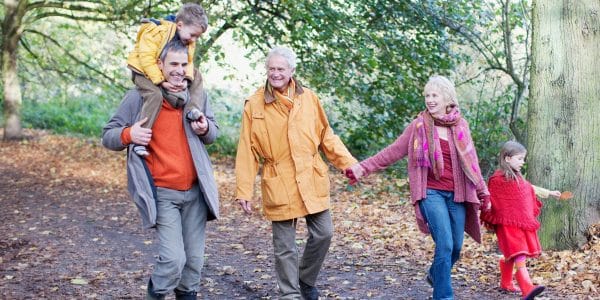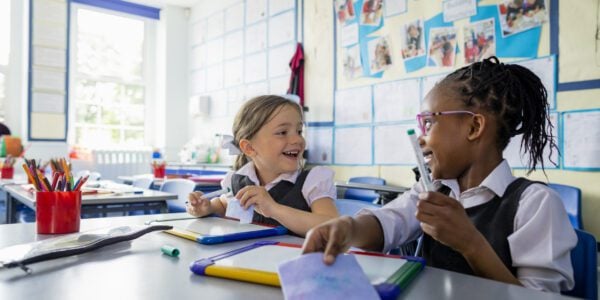
21/10/21
3 min read
Young adults have experienced a stronger labour market recovery in the second year of the COVID-19 pandemic compared with older workers, but the wealth gaps between age cohorts have increased, according to new research published today by the Resolution Foundation.
The Intergenerational Audit 2021 – funded by the Nuffield Foundation and part of the Resolution Foundation’s Intergenerational Centre – provides a comprehensive assessment of living standards trends during the second year of the Covid-19 crisis for different generations in the UK.
The report notes that young people were initially hardest hit by the economic impact of the crisis – with unemployment among 18 to 24 year olds rising by 2.6 percentage points between February 2020 and 2021, compared to an 1 percentage point rise across the workforce and an 1.1 percentage point rise among those aged 65 and over.
However, the reopening of the economy has almost closed this ‘generational jobs gap’. Between February and August, the proportion of 18-24-year-old workers on furlough fell from 22 to 4 per cent, compared to a fall from 18 to 7 per cent for workers aged 65 and over. Unemployment rates for 18 to 24 year olds also fell by 2.4 percentage points, compared to 0.2 percentage point fall among those aged 65 and over.
The report finds, however, that the welcome jobs recovery has not extended to improvements in job quality. By June 2021, the proportion of 16-24-year-olds on a zero hours contract was 1 percentage point higher than pre-pandemic levels, and the share of young workers involuntarily working part-time had also returned to its pre-pandemic peak (7 per cent).
The Intergenerational Audit 2021 notes that, although recessions normally bring about big falls in household wealth, usually as a result of falling house prices, the unique nature of the COVID-19 crisis has driven a wealth boom – with total wealth rising by £900 billion between February 2020 and May 2021.
The unlikely pandemic wealth boom has not been shared evenly
However, this unlikely pandemic wealth boom has not been shared evenly across age cohorts. Those aged 50 and over account for 63 per cent of the increase in total wealth during the pandemic, compared to just 13 per cent for under 40-year-olds.
The pandemic is therefore likely to have widened the already huge generational wealth gaps across Britain, says the Resolution Foundation. For example, the typical increase in family wealth among 35-40-year-olds was £8,000, less than half the increase seen by those aged 65-69 (£17,000).
The report notes that some of the pandemic’s wealth trends have been driven as much by family type, as by age.
For example, younger adults without dependent children were the most likely to report an increase in their family’s cash savings between February 2020 and June 2021 (one in three did) while young adults with children were most likely to see falls in their savings (one in four did).
With pandemic support measures such as the Job Retention Scheme now closed, policy makers must keep a watchful eye to ensure that the welcome improvements in the labour market are maintained, and that more worrying trends – such as lower savings among young families – are not made worse by the cost of living crunch this winter, says the Resolution Foundation.
Looking further ahead, the Resolution Foundation argues that restarting generational living standards progress should be a priority: from ensuring that rising job quantity is matched by rising job quality, and that younger generations are able to build up their assets and wealth in a way that previous generations have been able to, for example, by securing quality affordable housing.
Kathleen Henehan, Senior Research and Policy Analyst at the Resolution Foundation, said:
“Young workers bore the brunt of the initial Covid-19 labour market shock, but their employment rate has bounced back as the economy has reopened. But young workers are experiencing more of a return to business as usual than a bright new dawn, with many moving back into the same jobs sectors and insecure contracts that marked pre-pandemic Britain.
“And while the jobs market has slumped and recovered, Britain has also experienced an unlikely pandemic wealth boom. With over 55-year-olds accruing nearly two-thirds of this wealth boom, Britain’s already huge generational wealth gaps have got even bigger.
“Looking beyond the pandemic, policy makers need to do more to encourage young workers into secure new jobs as a key route to a high-pay, high-productivity economy. And with wealth in Britain at record levels, more must be done to ensure that all households have assets – either through a home of their own or savings to help withstand future economic shocks.”
Alex Beer, Welfare Programme Head at the Nuffield Foundation, said:
“The 2021 Intergenerational Audit shows the fragility of living standards in the UK and an increasing wealth gap between generations in an economy now being buffeted by supply chain and labour market disruption.
“While the increases in young people’s employment are good news, early indicators show no accompanying improvement in wages or job security, and that older workers are more likely to remain out of work. The cost of renting, as a proportion of income, remains high and recent data indicates housing arrears have increased across all ages.
“Moving towards a high wage, high skill, high productivity economy will require policymakers to increase their focus on job quality, and improving the living standards and prospects of younger generations requires action to address high housing costs and other barriers to building up assets and wealth.”









































